Scientists actually have a name for empathic!
Last week I discovered something that rocked my world! It all started when a girlfriend of mine sent me a link to a podcast she was listening to with this message: “I thought of you right away!” It was a 2015 episode from an NPR program called, “Invisibilia.” This episode was entitled “Entanglement.”
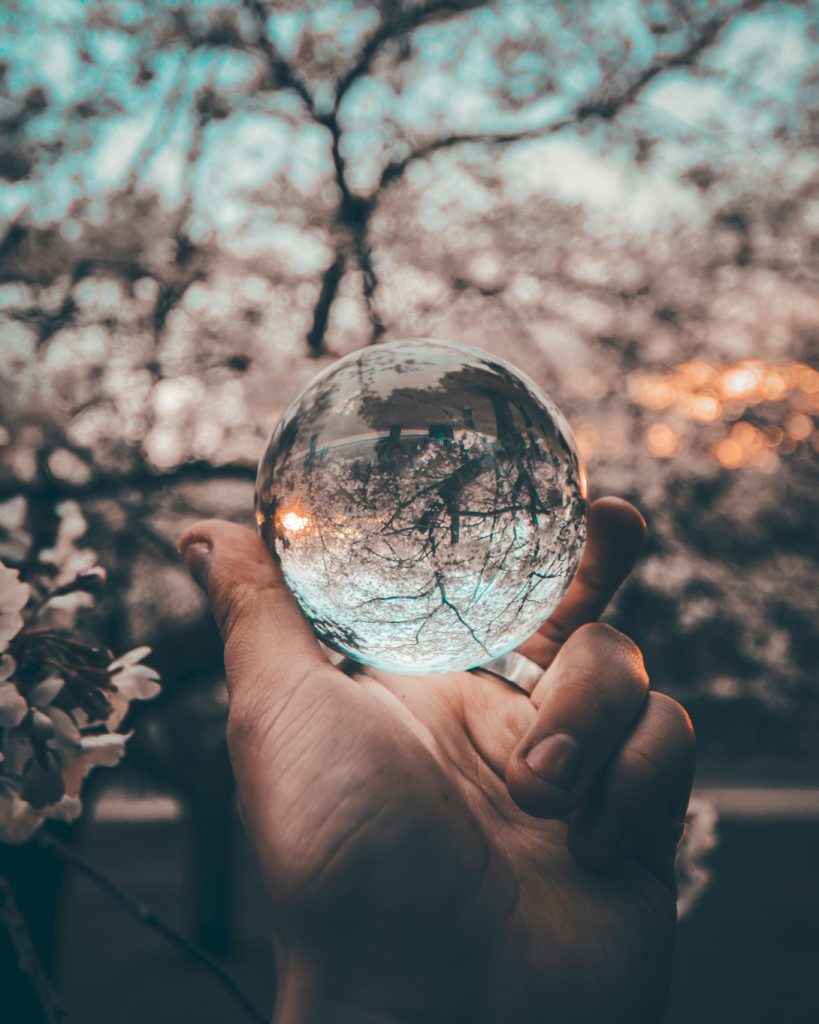
The next day she said, “Did you get a chance to listen to the podcast yet?” Since I hadn’t she went on to explain to me that when she sent it to me when she was only two minutes in. Two minutes in and learning about how there is a thing called quantum entanglement. In quantum entanglement atoms interact with another atom and then [mysteriously] actually become the other atom.
That had my interest! It sounded A LOT like my experience of being empathic.
In the radio program they explain how they can make this happen in their laboratories. Then they went on to say, “Quantum entanglement probably happens all of the time in the natural world. Like there could be one particle of you right now entangled with a person that you just passed on the street.”
🙂 Enter the experience of an empath!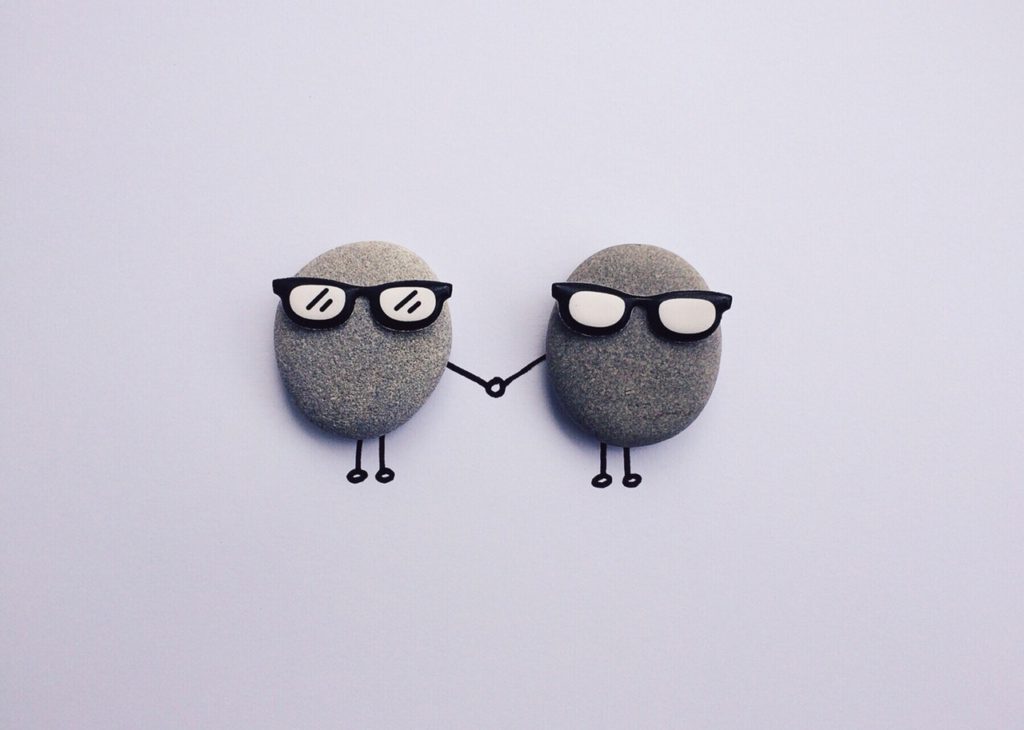
The next portion of this fascinating program went on to interview a woman who physically feels things that happen to other people in her own body. Her senses mirror or enact the sensations in her own skin. A person being hugged for example, or pinched, when she sees this she feels the same sensation physically in her body even though it is not happening to her. It turns out brain research scientists have been aware of this happening for a while! They even have a scientific name for it. It’s called mirror-touch synesthesia. They have monitored the brains of what I call empathic people (and they call mirror-touch synesthese) and see that the same neurons fire in the witnesses or empathic person’s brain as they do in the person having the experience even though they aren’t actually getting hugged or pinched etc.
Scientists have witnessed this happening!
Isn’t that exciting!?
The woman interviewed in the program had a very acute mirror-touch synesthesia of physically feeling sensations. In my world this represents one particular empathic characteristic. As you might expect the specifics of empathic experiences do vary from person to person. For example, like this woman’s acute case, some empaths have more heightened physical sensation acquisition. I had an Empath Intuition University student once who discovered while she was in my class that the back pain she had suddenly come down with was actually her husband’s. She was just picking it up. When she applied the energy clearing and boundary-creating techniques that I teach in my program her back pain went away entirely. 🙂
I can’t even explain how much I loved this radio show. It was such a pleasure hearing a scientific explanation for something I already knew existed and in fact feel all the time.
Everything that I teach in my programs has come from my own experience.
I’m empathic. I feel other people’s experiences in my own skin. The emotional language that is happening—even if it is completely under the surface (not being exhibited outwardly) is extremely loud to me. I walked into a room just last week where some teenagers were experiencing disdain for a person who also walked in. To me, it was as if someone was shouting, “Ugh! It’s him. He’s here!?” (Insert dramatic eye roll.) Outwardly they were doing nothing differently then they had been one moment ago. They made no move or indication that this was their opinion of that person– and yet I felt it as if someone was speaking it– loudly.
The techniques I teach in my Empath Intuition University are the tools that I have created in order to live happily as an empath—and not be walking around downloading every single thing I come across– this is why I got so excited to hear of other people, scientists, studying this phenomenon.
It’s like shedding a light on something I have mostly always been looking at from one angle—my angle– how to deal with it. Now I learn that there are others who even study the brain of a person who is built like this. Did I mention how fun and exciting that was for me to learn about!?
One radio host explained, “Mirror-touch isn’t just about people’s physical feelings. They seem to contract people’s feelingsy feelings: emotions.”
Then the Brittish Scientist, Michael Banissy, pipes up with “So for example if you see someone upset and you feel upset in response to that. It’s in this type of empathy that we find mirror-touch synesthese differ from non-synesthese. They have higher levels of this.”
He’s explaining what I consider a psychic phenomenon from a scientific perspective– and doing so accurately from what I heard!
I also loved hearing the scientist say out loud something else I’ve instinctively known to be true: being empathic is a hereditary genetic trait. (I feel that way about a lot of psychic traits actually.) I’ve always maintained that you either are empathic or you’re not. It’s not the same as empathy. It’s a different experience all together. Most people have empathy. I don’t believe most people are empathic. Banissy confirmed this.
In any case, if you are empathic– or you know someone who is– I highly recommend a listen to this program. It just may rock your world (in the best way!) too!
Here is the link: http://www.npr.org/programs/invisibilia/382451600/entanglement
Love,
Aimée
Aimée Cartier is a psychic and the founder of Intuition University where she has a program dedicated to helping empaths. Her Empath Intuition University program teaches empaths (or synestheses!) tools to manage their own abilities– so that they don’t have to go around like a walking radio receptor picking up and broadcasting every feeling they come across every moment– and equally importantly– they learn how to get access to their own self. Class start twice per year in September and January. She also offers private training for empaths. You can sign up to stay in the loop on this and other empath offerings here. Find out more at www.AimeeCartier.com.
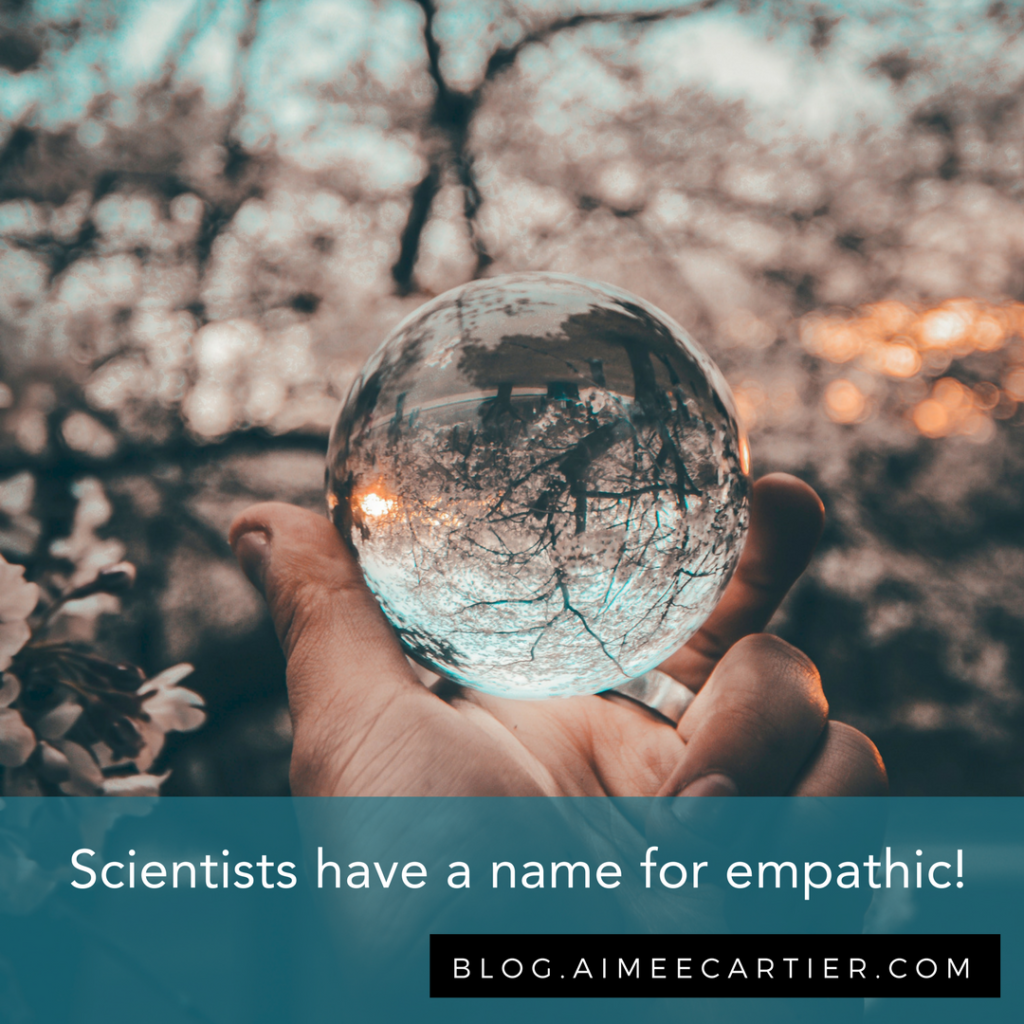
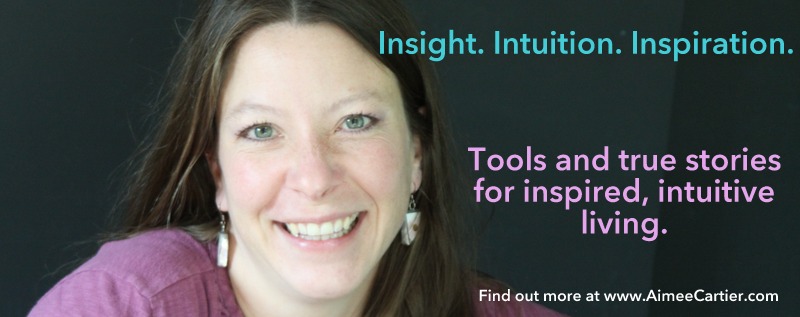





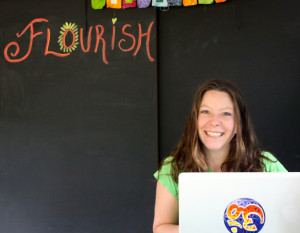 I like this!
I like this!